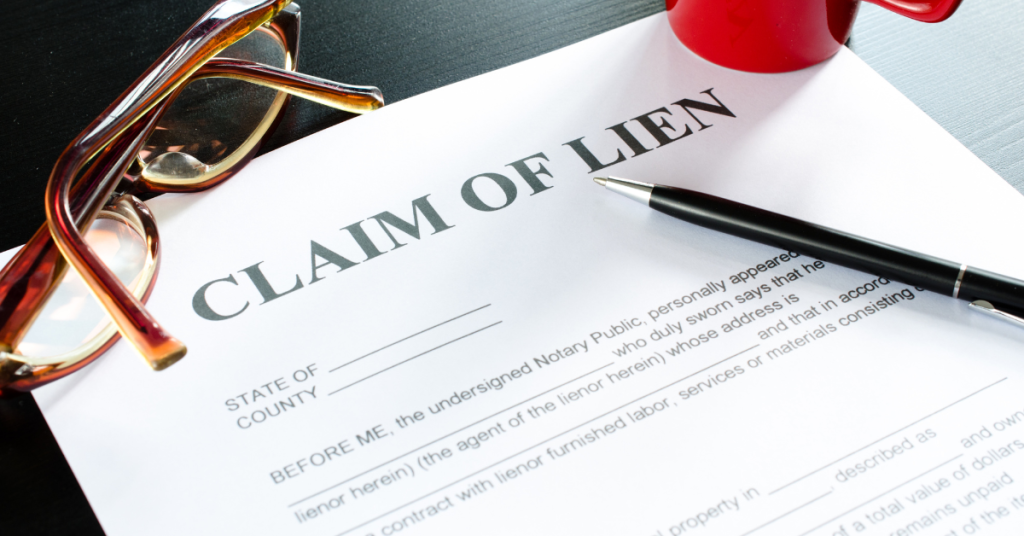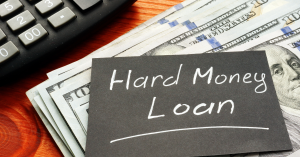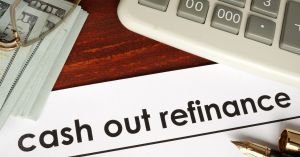Homeownership can often feel like a winding journey filled with many obstacles. One hurdle homeowners may encounter is whether a property with a lien can be refinanced. Most people instantly associate it with impending financial doom, yet the reality is far clearer.
How a lien affects your ability to refinance (refi), your home hinges on the type of lien and your understanding of the refi process under these circumstances. Based on my in-depth knowledge of refinancing, it’s possible to refi your home with a lien. Ready to unveil the mystery behind this complex issue?
The Concept of Home Liens
A lien is a legal claim or a “hold” on some property, be it a home, car, or valuable item, making it collateral against money owed to a creditor. Below are different circumstances that may result in a home lien:
- Taking on debt to purchase a home: The lender holds a claim on the house as security against the loan, referred to as a mortgage lien.
- Unpaid taxes: The government can place a tax lien on the home if a homeowner fails to meet tax obligations. This way, they ensure they recover their money when the property is sold.
- Child support or spousal alimony: When an individual fails to adhere to court-ordered child support or alimony payments, the court may impose a lien on the person’s property, including their home.
Understanding these circumstances and their impact on your property is crucial for a homeowner, especially when considering refinancing the house.
Types of Home Liens
Liens can be categorized into two main types:
Voluntary
Voluntary liens are those where the debtor willingly uses the property as collateral for a loan. The homeowner agrees to the lien until the loan is fully paid.
Involuntary
In contrast, involuntary liens are imposed by a creditor or the court. They often arise due to unpaid obligations like taxes, bills, or court judgments.
Refinancing With a Lien
Refinancing a home with a lien may seem challenging at first glance, but it’s not impossible. Still, it’s crucial to understand that this intricate process has no guaranteed approval.
These liens have extensive legal rights over properties, making them difficult to navigate in a refinancing scenario. One challenge you may face during this process is dealing with a federal tax lien.
Dealing with Home Liens
Refinancing a home while dealing with a federal tax lien can be a tall order. Here’s how to navigate the challenge:
Acquire a Certificate of Subordination
A possible solution is applying for a Certificate of Subordination, a formal request to the IRS to allow other creditors to move ahead of the IRS, paving the way for possible refinancing.
While a Certificate of Subordination might aid your refinancing process, it doesn’t resolve all tax-associated issues or eradicate your tax lien. The lien’s root cause, the unpaid tax debt, remains to be dealt with.
File an Appeal
It’s common for homeowners to face an initial denial when applying for a certificate of subordination from the IRS. Yet, filing an appeal and presenting a compelling argument for the subordination could see the IRS reconsider its initial decision.
Enlist Professional Assistance
Given these complexities, many homeowners turn to an experienced tax professional. Their expertise in dealing with such complex legal and financial scenarios can be invaluable in successfully navigating this process.
The Cost of Refinancing a Mortgage

When navigating a refi with a lien, you may wonder how much refinance your home mortgage costs. These could include application fees, loan origination fees, and appraisal fees. Typically the total cost varies based on loan size, location, or the loan lender.
Remember, the goal of refinancing should be to save money in the long run, so always weigh these costs against potential savings to ensure it’s worthwhile.
Can Liens Affect Your Credit Score?
A lien, especially a federal one, can devastate your credit score and overall credit health. Delving into this issue reveals a series of impacts every homeowner should understand.
A Matter of Public Record
A lien is a matter of public record, meaning it stays on your credit report for potential lenders and creditors. This visibility can, consequently, affect your ability to get approved for credit or loans in the future, given that it paints your financial portrait negatively.
Multiple Inquiries and Their Impact
Multiple inquiries may appear in your credit report while trying to rectify the situation or deal with the lien. Numerous inquiries can hurt your credit score, making future financial transactions even more burdensome.
Changes in Credit Bureaus’ Policies
It’s worth noting that the major credit bureaus no longer include liens on credit reports. This policy change was enacted to protect consumers and ensure fairness and accuracy in credit reporting. However, other lenders or organizations may access this public record information separately.
The Transition of Old Debt to New Debt
One important aspect is that your old debt transitions into a new debt when you refi. The refi loan pays off your original mortgage (and lien, if included), and what you owe is now under this new loan. While this can simplify repayment, it may initially appear as new debt and could briefly influence your credit score.
How Property Liens Impact Selling or Buying a Home?

If your property has a lien, it indicates a defaulted payment of taxes. In most cases, you may not sell your property under such conditions or require the removal of the lien before continuing with the sale.
If you own a multi-width manufactured property, you can opt for a cash-out refinance manufactured home refi and convert home equity into cash. However, most lenders require a title for your manufactured home is giving loan approval. Notably, a lien on the title can prevent the sale or transfer of ownership until the lien is removed.
How to Get a Lien Release
When facing a lien, the best course of action is to seek a release, which indicates that the debt obligation has been fulfilled, and the lien has been removed. Lien release can be obtained by paying off the debt in full. However, if this isn’t feasible, negotiating with the lienholder or settlement via legal routes might be alternatives.
Here are ways of getting a lien release:
Tax Lien
With tax liens, your first port of call should be the IRS. They will guide you on how to proceed with paying off your taxes. Your next step would involve securing the necessary certification, which allows other creditors (like your refinancing company) to be prioritized before the IRS. This could alleviate restrictions and facilitate the refinancing process.
Overall, a lien release clears the title of your home, making refi easier. Once released, updating the property’s public records is crucial to ensure the lien no longer shows up, allowing a smoother refinancing process without high average closing costs for a refinance.
Mechanic’s Lien
Mechanics or construction liens arise when a contractor has completed work on your property but has not been paid. The first step in addressing a mechanic’s lien is contacting the holder. This could be an individual or a company who provided services to your home but hasn’t been paid.
Then, arrange for the lien to be subordinated to your refinancing company. This process can be complex and require a legal representative’s assistance.
Mechanic’s lien holders may require you to clear the dues before refilling. In this case, it’s worth looking at the purchase vs refinance options to see which could be more beneficial given your unique chance. Remember, even after addressing the lien; it can stay on your credit for up to seven years, potentially influencing your creditworthiness.
Refinancing Despite Home Liens

Refinancing with a lien on your home requires careful consideration and a strategic approach. Collaborating with experienced professionals who can guide you through the intricacies of dealing with liens and exploring potential solutions is essential.
While it may not be a straightforward process, remember that viable options are available. By taking proactive steps, such as obtaining lien releases or certificates of subordination and seeking expert assistance, you can increase your chances of successfully refinancing your home and securing a better financial future.
With determination and the right support, you can navigate this complex terrain and make informed decisions that align with your financial goals.
Frequently Asked Questions About Refinancing With a Lien on Your Home
Is a cash-out refinance a lien?
A cash-out refi is not a lien but a loan refinancing option that homeowners use to tap into their home’s equity. However, just like the original loan, the cash-out refi becomes a type of lien on your home because you put your home up as collateral for the new loan.
Does a lien affect your credit?
Yes, a lien can affect your credit rating. It used to dent your credit score directly, but changes in credit bureau policies no longer include tax liens on your credit report. Nevertheless, a lien can still indirectly impact your credit history as it poses hurdles in securing future credit or loans, thus influencing your overall credit health.
Is a lien the same as a loan?
No, a lien is not the same as a loan. It’s a legal claim on a property due to owed debt, whereas a loan is an amount of money borrowed expected to be paid back with interest. However, a lien could result from an outstanding loan – for instance, if you default on your loan, the lender can impose a lien on your property.






